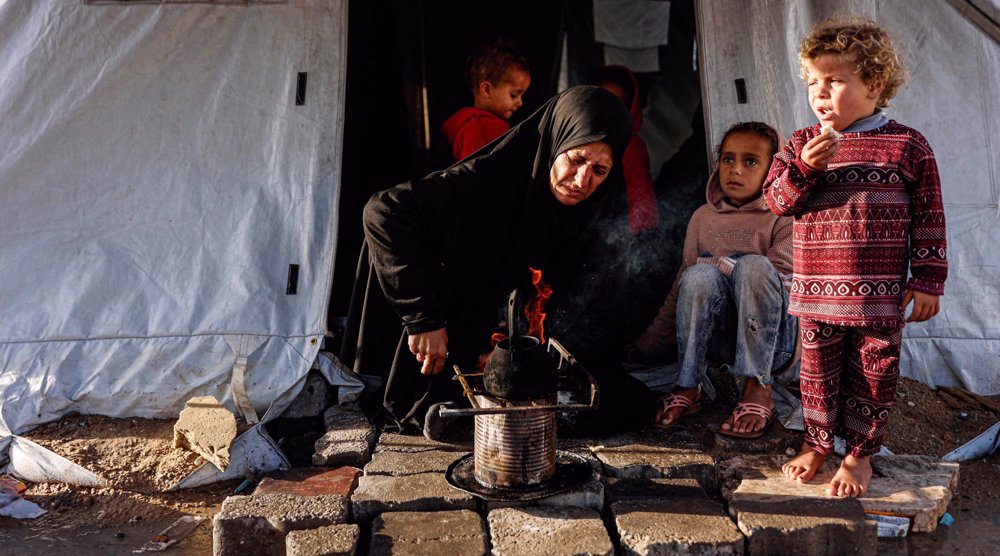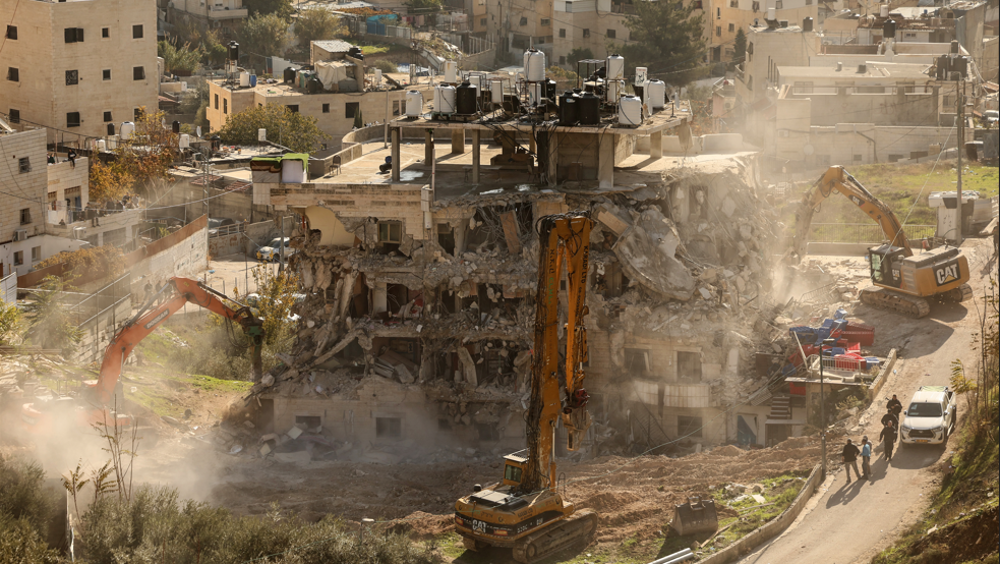Abbas meets Putin, voices concern over US policy
Palestinian President Mahmoud Abbas has held talks with his Russian counterpart Vladimir Putin in Moscow, expressing concern about Washington's behavior in the region, ahead of a summit between the Russian leader and US President Donald Trump in the Finnish capital of Helsinki.
During the meeting on Saturday, the two sides discussed the situation in the Middle East, the relocation of the US Embassy from Tel Aviv to Jerusalem al-Quds, as well as Israeli settlement activities in the occupied territories.
The Palestinian president voiced concern that the embassy relocation was the first step to carry out the so-called Deal of the Century, proposed by the American president. "... we think that the first step on the way to that plan was the transfer of the US embassy to Jerusalem (al-Quds)."
The so-called deal, a backchannel plan to allegedly reach a peace settlement between Israel and Palestinians, was proposed by the US administration late last year. Although the plan has not been released, leaks signal it will consist of the same tried-and-failed ideas.
Palestinians believe that the deal suggests building their own Jerusalem al-Quds from areas surrounding the existing city and forget about the historical place. They also believe that the US-drafted plan calls for keeping borders and security under Israeli control, while it keeps Israeli settlements’ final borders to be discussed in later negotiations.
Earlier in June, Secretary General of the Lebanese resistance movement Hezbollah Seyyed Hassan Nasrallah said Trump’s much touted “Deal of the Century” aimed to terminate the Palestinian cause. Nasrallah said Israeli officials had been seeking to change the demographic make-up of Jerusalem al-Quds ever since the Tel Aviv regime was created.
Last month, Trump’s senior adviser, Jared Kushner, said details of the proposed deal would be announced soon.
Relations between the US and Palestine deteriorated last December, when Washington recognized Jerusalem al-Quds as the “capital” of Israel and announced plans to relocate the embassy.
Israel lays claim to Jerusalem al-Quds in its entirety, but the international community views the city’s eastern sector as an occupied territory and Palestinians consider it as the capital of their future state.
The contentious move led Abbas to formally declare that Palestinians would no longer accept the US as a mediator to resolve the conflict, because Washington was “completely biased” toward Tel Aviv.
The US embassy relocation took place on May 14, the eve of the 70th anniversary of Nakba Day (the Day of Catastrophe), sparking deadly clashes in the Gaza Strip.
Trump has time and again called his yet-to-be-released plan as “The Deal of the Century”, but it is coincidentally the title of a 1983 comedy which features a bunch of hapless arms dealers, who compete to sell a weapon called the Peacemaker to a South American dictator.
Putin and Trump will have their first summit on July 16 in the Finnish capital, where they are going to discuss various issues.
During his Saturday meeting with Putin, Abbas said Israel's plan to extend its settlements on the Palestinian territory was the main problem for Palestine.
'Difficult time'
"Indeed, today our region and Palestine go through a difficult time," Abbas told Putin.
"And I can tell that another crisis is developing, which is related to the situation in Palestine, and first of all, I mean the attempts and plans of Israel regarding the new settlements... This is what worries us very much," he said.
The meeting between Abbas and Putin came just days after the Russian leader met with Israeli Prime Minister Benjamin Netanyahu in Moscow and discussed regional issues, including Palestine.
More than half a million Israelis live in over 230 settlements built since the 1967 Israeli occupation of the Palestinian territories of the West Bank and East Jerusalem al-Quds.
The UN and most countries regard the Israeli settlements as illegal because the territories they are built on were captured by Israel in a war in 1967 and are hence subject to the Geneva Conventions, which forbid construction on occupied lands.
Nevertheless, the Israeli regime continues to build more settlements and expand existing ones.
Iran, Russia presidents review strategic relations, joint agreements
VIDEO | Legacy beyond martyrdom
Iran’s president vows ‘severe’ response to any aggression after Trump’s threat
Venezuelans will defend their independence in face of unlawful US moves: Iran FM
VIDEO | Millions of Afghans facing severe hunger amid aid cuts
Iran labels Royal Canadian Navy a ‘terrorist organization’ over IRGC designation
Palestine Action hunger strikers near death
VIDEO | Haibat al-Halbousi elected as speaker of Iraqi Parliament for four years












 This makes it easy to access the Press TV website
This makes it easy to access the Press TV website